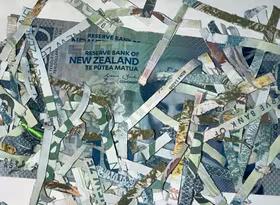Vehicle registrations set to crash, but how bad will it get?
Back during Christmas 2017, car dealers must have had plenty to celebrate. Riding the crest of a wave of population growth and a prosperous economy, spurred on by the National-led Government’s open-door policy towards international migration, an unprecedented 274,000 new and used cars had been newly registered in New Zealand in the previous 12 months.
Wiser heads must have known the party couldn’t last, and so it didn’t. Population growth had already begun to slow in 2017, and soon afterward businesses and consumers started to get the inkling that, economically speaking, their best years were behind them. The economy was settling into a period of lower growth. As a result, car registrations began to come off the boil.
COVID-19 rips up the rulebook
At Infometrics we have been forecasting car and commercial vehicle registrations for more than 30 years. But what happened next took us all by surprise.
As recently as December 2019, we were forecasting a gradual malaise in car registrations as slowing population growth, anaemic economic growth, declining business profitability, and soft wage growth all combined to create a stagnant cocktail of cautious pessimism that would undermine businesses’ and consumers’ willingness to make major purchases.
The COVID-19 pandemic has been responsible for the swiftest and sharpest reversal of economic fortunes in living memory. Indeed, the speed with which the economic outlook has changed in recent months has far exceeded anything we experienced during the 2008/09 Global Financial Crisis (GFC), which itself felt like a particularly fast-moving train crash at the time.
Over the last two and half months, New Zealand’s response to COVID-19 has ratcheted up at pace:
- On February 3, New Zealand placed temporary entry restrictions into New Zealand on all foreign nationals travelling from, or transiting through, mainland China – a body blow to the rental car sector that relies on tourists for a good proportion of their business.
- On March 20, New Zealand closed its borders to all non-residents, effectively shutting off a key market for car dealerships – new migrants.
- On 26 March New Zealand entered a minimum four-week lockdown.
Hitting pause on the economy
Some cash-strapped car dealerships may not reopen after the lockdown. Those that do survive through the lockdown may be affected by the collapse in international tourism, which is essentially in a holding pattern until our borders reopen. But the economic ramifications won’t end there. The COVID-19 pandemic and response is like a pebble thrown into a lake, with its effects rippling throughout the economy. A tighter rein on both business and household budgets will have a devastating effect on demand conditions, particularly for big ticket purchases such as cars.
The economy will recover. But it will be a long, slow, road, with our latest forecasts pointing towards activity not reaching pre-COVID-19 levels for 3.5 years at least. The more immediate question is: how bad will it get before it gets better? We are picking car registrations to fall from 238,000 in the year to March 2020 to a low of 135,000 in the year to March 2021, a fall of 43% (see Chart 1).
This near-term forecast constitutes the largest fall over a 12-month period since our data series began back in the 1990s. We saw a fall of 30% in 2009 in the immediate aftermath of the GFC. But the coming economic downturn is set to be at least four times larger than anything we’ve seen in living memory, so there is understandably considerable scope for error in our near-term forecast. What’s most worrying is that, with the benefit of hindsight, we might look back in a year’s time and say we were too optimistic.










